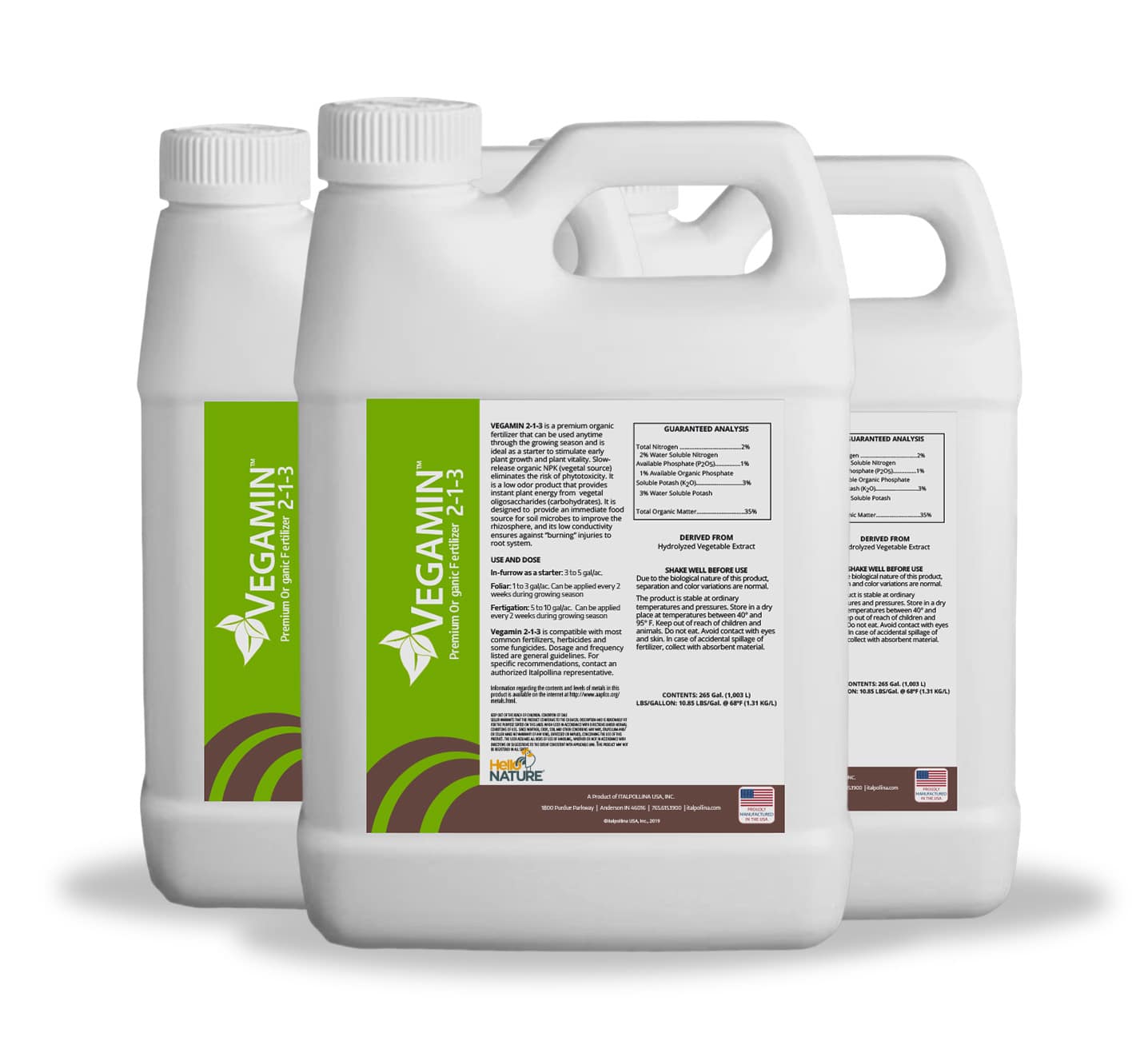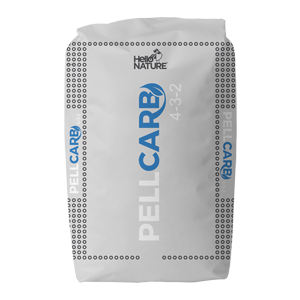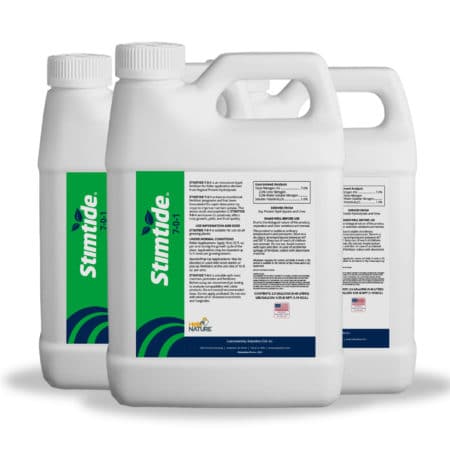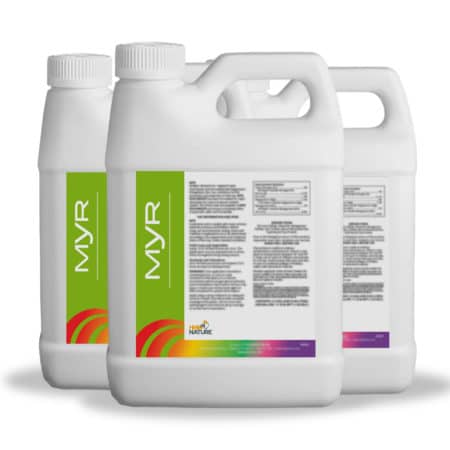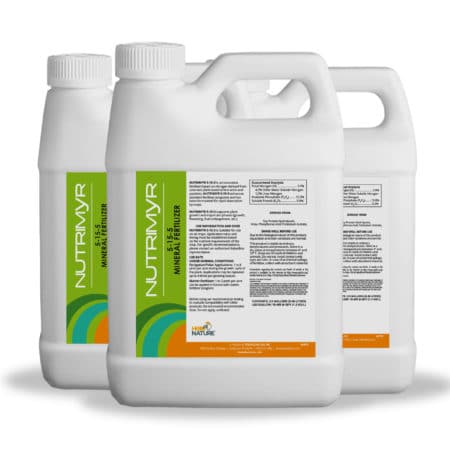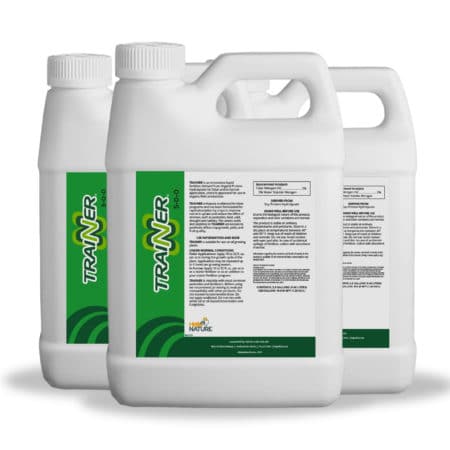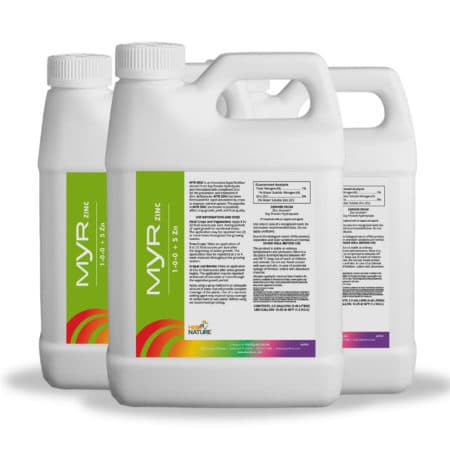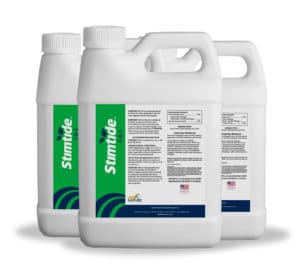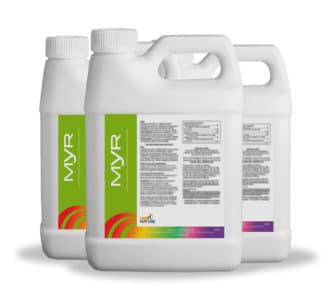Vegamin is designed for fertigation systems and can be used after plantation, transplanting, and during the vegetative growth season or vegetative growth.
In-furrow as a starter: 11 to 4 qt./ac.
Foliar: 1 to 4 qt./ac. Can be applied every 2 weeks during growing season
Fertigation: 1 to 4 qt./ac. Can be applied every 2 weeks during growing season
Industries: Greenhouse, Nursery, Specialty Crops, Horticultural, Hydroponic (soil-less), Ornamentals
Vegetal Protein Hydrolysates
Hello Nature’s Vegetal Protein Hydrolysate products are made exclusively from the highest quality, non-GMO vegetal sources and are guaranteed to contain no animal by-products. They are produced using a proprietary Enzymatic Hydrolysis process. They naturally contain organic nitrogen, organic carbon, and Plant Stimulating Peptides.
Nitrogen (N)
Plays a very important role in various plant physiological processes. It imparts dark-green color in plants, promotes leaves, stem and other vegetative part’s growth and development. Moreover, it also stimulates root growth. N produces rapid early growth, enhances the growth of leafy vegetables, and increases protein content of fodder crops.
Organic Matter
Primarily composed of carbon, organic matter in soil has direct benefits for agricultural production. Soil organic matter plays a vital part in enhancing soil fertility and quality, on three levels: chemical (capacity to store and supply essential nutrients), physical (improve soil structure and water holding capacity), biological (enhance biodiversity, improve microorganisms’ activity, and capture carbon).
Phosphorus (P)
Is essential in photosynthesis and respiration. Seeds have the highest concentration of P in a mature plant, and P is required in large quantities in young cells, such as shoots and root tips, where metabolism is high and cell division is rapid. P aids in root development, flower initiation, and seed and fruit development.
Potassium (K)
Is vital for plant metabolism. It helps in the development of a strong and healthy root system and increases the efficiency of the uptake and use of nitrogen and other nutrients. K helps photosynthesis, regulates the water status in the plant and plays an essential part in the formation of starch and in the production and translocation of sugars. K not only increases yields but also enhances fruit quality, improving flavor and color and increasing the size.

